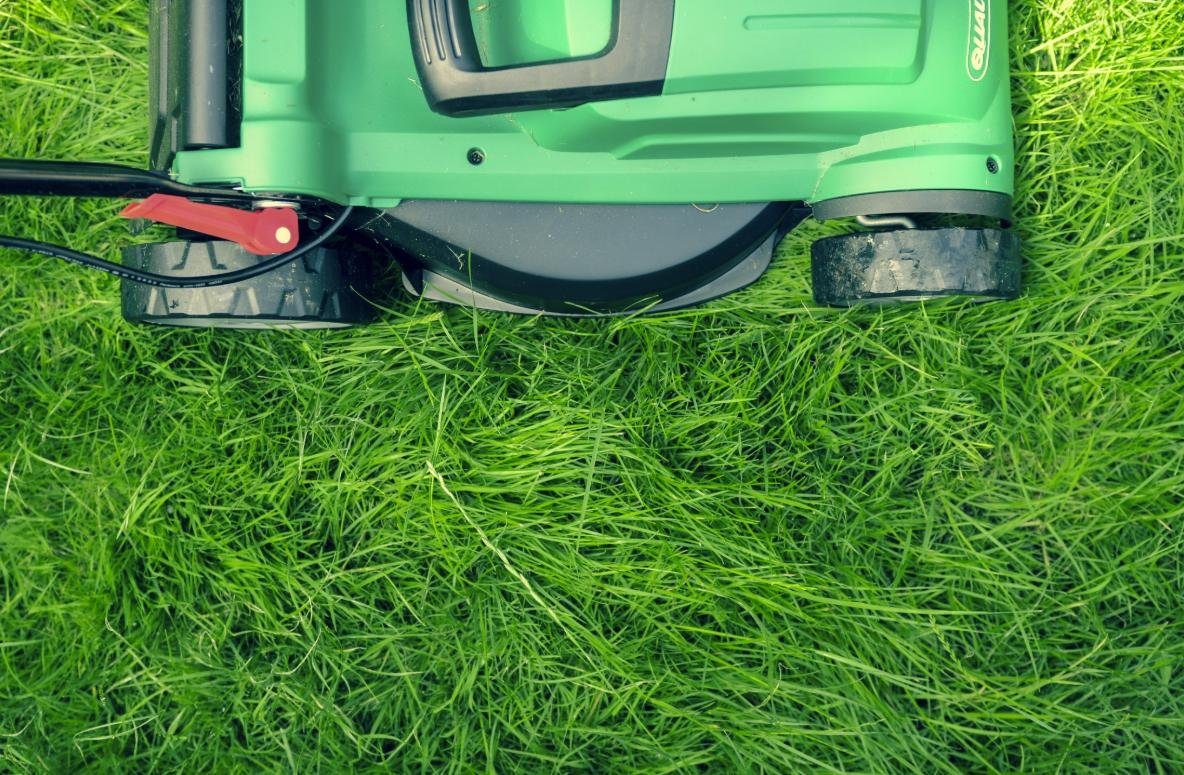Introduction
The act of purchasing a lawn mower is not merely a transaction; it is a significant investment that can greatly influence the state of your lawn over time. Understanding the timing of this purchase is crucial, as it can directly affect the options available in terms of models, prices, and overall availability. Generally, the right season for buying a lawn mower can help consumers make more informed choices, ensuring they select a machine that best fits their lawn care needs.
Seasonal considerations play a pivotal role in determining the best time to buy a lawn mower. In the early spring, demand tends to peak, which may limit product availability and result in higher prices. Conversely, late summer and early fall often witness a decline in interest, leading to discounts and promotions. By strategically navigating these seasonal fluctuations, buyers can optimize their investments, potentially acquiring a better mower at a more favorable price.
In addition to seasonal factors, one must also consider other aspects that influence the timing of lawn mower purchases. For instance, model year changes may bring about new features or improvements in design, prompting consumers to evaluate whether to invest in the latest models or opt for discounted older versions. Furthermore, regional climate variations can also dictate when homeowners find themselves in need of reliable grass-cutting equipment, affecting their urgency and choices significantly.
As we delve deeper into this discussion, we will explore the various timeframes throughout the year, highlighting the advantages and drawbacks of purchasing during each season. This knowledge will empower consumers to make informed decisions in their quest for the ideal lawn mower that meets both their functional and financial expectations.
Understanding Seasonal Trends
When considering the purchase of a lawn mower, understanding the seasonal trends surrounding lawn care equipment is crucial. Demand for lawn mowers typically surges in the spring months, as homeowners prepare their yards for the growing season. During this time, many individuals prioritize the upkeep of their lawns, prompting them to invest in reliable mowing equipment. Consequently, retailers often raise prices to match the increased demand. This climate results in a competitive market where consumers may feel pressured to make quick purchasing decisions, potentially sacrificing thorough research on available options.
As spring progresses into summer, demand may begin to stabilize, but prices often remain elevated due to the season’s ongoing activity in lawn care. However, fall and winter mark a significant shift in the purchasing landscape. Many consumers choose to postpone their lawn mower purchases during these off-peak seasons, resulting in less competition and ultimately better deals. Retailers are typically more eager to clear out inventory, and as such, markdowns and discounts become more prevalent. Timing one’s purchase for these less popular months can lead to substantial savings, making it a strategic approach for budget-conscious consumers.
Additionally, it is essential to consider region-specific weather patterns, which may contribute to fluctuations in demand for lawn care equipment. For instance, areas with milder winters may see a less pronounced seasonal dip in purchases compared to regions with heavy snowfall. By keeping these regional differences in mind, consumers can better navigate the cyclical nature of lawn mower sales. Understanding when to buy and recognizing these trends offers homeowners the opportunity to make informed decisions while optimizing their budget for lawn care equipment.
Best Time of Year to Buy a Lawn Mower
Identifying the optimal time to purchase a lawn mower can significantly impact your budget and selection. Traditionally, the best time of year to buy a lawn mower tends to be during the late summer and early fall months. Retailers often aim to clear their inventory as the mowing season draws to a close, leading to substantial discounts on existing models. This seasonal shift in availability typically results in prices being marked down to encourage purchases before newer models arrive in spring. As such, consumers during this period may enjoy bargains on high-quality, established lawn mower brands.
Additionally, shopping during these end-of-season sales grants you access to a diverse range of models that may not be as available throughout the active mowing season. Customers can often find robust options that suit varying yard sizes and preferences at reduced rates. This time frame is also advantageous as it allows prospective buyers to assess the performance and features of different mowers without the pressure of immediate purchase.
While the late summer and early fall months provide excellent opportunities, winter also presents unique advantages for purchasing lawn mowers. Some retailers hold promotional sales during this off-peak season as part of their inventory management strategy, where they offer discounts to attract buyers. Though the selection may be limited, it’s still possible to find competitive prices on lawn mowers during winter clearance events.
In summary, the best times to acquire a lawn mower are typically at the end of the mowing season in late summer and early fall, as well as during winter promotional sales. By strategically timing your purchase, you can optimize both your budget and selection, ensuring you invest in the right equipment for your lawn care needs.
Sales Events and Discounts
When considering the optimal time to purchase a lawn mower, it’s essential to be aware of various sales events and discounts that can significantly reduce costs. Major retail holidays such as Memorial Day, Labor Day, and Black Friday are renowned for offering substantial markdowns on lawn care equipment, including lawn mowers. These occasions present golden opportunities for consumers to secure competitive prices, as many retailers aim to boost sales by providing enticing offers during these periods.
Memorial Day, which occurs at the end of May, signals the onset of the mowing season. Retailers often capitalize on this opportunity to promote lawn mowers alongside garden equipment, providing deals that appeal to homeowners eager to upkeep their yards. Labor Day in September marks another pivotal sales event, typically focusing on seasonal shifts, wherein retailers clear out inventory. Discounts on lawn mowers during this time make it an ideal occasion for value-seeking shoppers.
Black Friday, occurring the day after Thanksgiving, has become widely recognized for its deep discounts across various product categories. Many home improvement stores and outdoor retailers participate in these sales, offering limited-time promotions and significant price reductions on lawn mowers. Consumers should prepare for this shopping extravaganza by researching models and prices ahead of time, ensuring they are poised to take advantage of the best deals. Additionally, consumers may find appealing factory rebates and manufacturer discounts during these sales events, further enhancing the overall affordability of lawn mowers. By timing your purchase strategically around these key sales periods, you can maximize savings and invest in the best lawn care equipment for your needs.
New Models vs. Last Year’s Models
When contemplating the purchase of a lawn mower, consumers often face the choice between new models and last year’s models. Understanding the distinctions between these two options can significantly impact the buying decision. New lawn mowers typically incorporate the latest advancements in technology, featuring improved efficiency, enhanced durability, and the latest in design aesthetics. For instance, many new models may come equipped with fuel-efficient engines, which not only minimize environmental impact but also reduce long-term operating costs. Additionally, features such as self-propulsion, advanced mowing systems, and smart technology integration are more commonly found in new models, enabling a more user-friendly experience.
On the other hand, last year’s models can present a compelling cost-effective alternative. These lawn mowers are often available at discounted prices as retailers are keen to clear out their old inventory to make room for newly released machines. While older models might not boast the latest technologies, they are generally still reliable and capable of handling basic lawn care tasks. Moreover, consumers can benefit from significantly reduced prices without compromising on quality, especially if they are looking for straightforward functionality without the need for advanced features.
When considering a purchase, it is also crucial to evaluate factors such as warranty length, customer support, and the availability of spare parts. New models usually come with comprehensive warranties and robust support options, providing reassurance in case of any operational issues. Last year’s models might have shorter warranties, or in some cases, parts may become harder to find as new models are introduced. Therefore, it is advisable for prospective buyers to weigh not just the initial cost but also the long-term implications of their chosen model, focusing on their specific needs and preferences in lawn maintenance.
Where to Buy Your Lawn Mower
When it comes to purchasing a lawn mower, consumers have several options at their disposal, each offering distinct advantages and disadvantages. Understanding these choices can aid buyers in making an informed decision that aligns with their needs and preferences.
Big-box retailers, such as Home Depot and Lowe’s, are popular for their wide selection of lawn mowers, ranging from gas-powered to electric models. These stores often provide competitive pricing and seasonal sales, making them an attractive option for budget-conscious shoppers. Additionally, customers can benefit from the convenience of one-stop shopping, as they can find related products such as lawn care accessories. However, not all big-box retailers offer exceptional customer service, and return policies may vary, potentially leading to complications for buyers seeking assistance or exchanges.
Local hardware stores present another viable option. These establishments typically emphasize customer service, enabling buyers to receive personalized recommendations based on their specific lawn care needs. Furthermore, local retailers often carry products that are better suited for the regional landscape and climate. On the downside, local stores may have a more limited inventory compared to larger chains and might not offer as competitive prices due to smaller operational scales.
Online marketplaces, such as Amazon or eBay, offer the convenience of shopping from home and typically provide a vast selection of lawn mowers. Additionally, online platforms often feature customer reviews that can guide purchasing decisions. However, buyers should remain cautious with online purchases as they may have to deal with shipping fees, and not being able to test the mower before buying could lead to dissatisfaction. Additionally, the return process may be more cumbersome with online purchases.
Ultimately, the best place to buy a lawn mower depends on individual preferences regarding price, customer service, and convenience. Each option presents unique benefits and drawbacks, so it is essential to weigh these factors when deciding where to make the purchase.
Factors to Consider Before Buying
When contemplating the purchase of a lawn mower, several key factors should be taken into account to ensure that the right model is selected for your specific needs. One of the first considerations is the size of the lawn. Larger properties may necessitate more powerful mowers, such as riding models or robust self-propelled units, while smaller yards can be maintained effectively with push mowers or electric options. Assessing the square footage of your lawn will enable you to choose a mower that will not only efficiently cut the grass but also reduce the time and effort spent on this task.
Another important factor to consider is the type of mower, specifically the choice between gas and electric models. Gas mowers are typically more powerful and suitable for larger, thick, or overgrown lawns. In contrast, electric mowers are quieter, cleaner, and easier to maintain, making them an excellent option for homeowners with smaller lawns or those who prefer an environmentally friendly alternative. Battery-powered mowers have also gained popularity due to their portability and convenience; however, they may have limitations regarding runtime and cutting width. Assessing your lawn size, terrain, and personal preferences will aid in making an informed choice between gas and electric mowers.
Additionally, the maintenance requirements of different models should be evaluated. Gas mowers often demand more routine maintenance, such as oil changes and air filter cleaning, whereas electric mowers typically require minimal upkeep. Buyers must weigh the pros and cons of each option, taking into account their willingness and ability to perform maintenance tasks. Furthermore, consider which features are essential for your mowing experience; adjustable cutting heights, mulching capabilities, and grass collection bags are all aspects that can enhance usability and performance. By carefully examining these factors, potential buyers can ensure they select the perfect lawn mower tailored to their specific requirements.
Tips for Test Driving Lawn Mowers
Before committing to the purchase of a lawn mower, taking the time to test drive different models is essential. This experience allows potential buyers to assess key factors that contribute to overall satisfaction with their investment. Start by considering comfort; during the test drive, ensure that the mower’s controls are easy to reach and operate. The ergonomics of the mower are important, as a comfortable grip can make a significant difference during prolonged use.
Next, evaluate the ease of maneuverability. If the lawn mower is cumbersome or difficult to steer, it may lead to frustration while mowing. Consider the weight and size of the machine, and how well it turns around obstacles in your yard. A mower that is responsive to your commands and not overly heavy will enhance your mowing experience.
Cutting efficiency is another critical factor to observe. During your test ride, engage the mower’s cutting mechanism to determine how well it performs. Check how evenly it cuts the grass, and consider the height settings and adjustment ease. A mower that consistently delivers an even cut will save you time and effort in the long run.
Don’t hesitate to ask sales associates specific questions that pertain to your mowing needs. Inquire about engine specifications, maintenance requirements, and warranty options. Understanding these details can help determine how well the mower aligns with your own specifications. A knowledgeable associate can provide insights that may not be evident during the test drive. By gathering all necessary information, you will be better equipped to make an informed decision about which lawn mower ultimately meets your requirements.
Conclusion
Determining the optimal time to purchase a lawn mower involves several strategic considerations that can significantly impact your investment. Throughout this blog post, we have explored the various factors that come into play, including seasonal trends, sales promotions, and individual lawn care needs. Understanding these elements empowers consumers to make informed decisions when it comes to buying lawn mowers.
Seasonality plays a crucial role in timing your purchase. Typically, the demand for lawn mowers peaks during the spring months, coinciding with the beginning of the mowing season. Consequently, prices may be higher during this period. Conversely, considering a purchase during the off-peak season, such as late summer or early fall, can lead to substantial savings, as retailers often offer discounts to clear inventory. Additionally, holiday sales and end-of-season clearance events present valuable opportunities for savvy shoppers.
Moreover, assessing your personal needs is critical. Factors such as the size of your yard, the type of terrain, and your frequency of mowing should influence not only the type of mower you choose but also when you decide to make your purchase. Evaluating these aspects can prevent hasty decisions that may result in inadequate equipment or unforeseen expenses.
Lastly, adopting a strategic shopping approach, such as researching different models and reading consumer reviews, can further enhance your purchasing experience. By combining this knowledge with an understanding of timing, you place yourself in an advantageous position to select the right lawn mower at the right price. Ultimately, the goal is to ensure that your investment meets your lawn care needs efficiently while being mindful of your budget.







